Boy Who Could Fly, The (1986)
“Sometimes we need to believe in a little magic, especially when there’s so much pain.”
|
Synopsis: |
|
Genres, Themes, Actors, and Directors:
Review: … Deakins longs from afar to be part of the predictably hip “in crowd” at school: … and Bedelia (predictably) struggles to adapt to working life after 13 years away (she’s absolutely flummoxed by the introduction of computers into the insurance business). The major selling point of the film is Deakins’ relationship with Underwood, which is touching, but leaves one with too many questions left unanswered about Underwood’s situation and supposed special abilities. His character is referred to as “autistic”, but doesn’t necessarily display characteristic signs of this, instead apparently suffering from selective mutism and emotional disturbance after his parents’ untimely death. (Could this gaffe be a function of autism only recently being better understood?) Meanwhile, his alcoholic caretaking uncle (Fred Gwynne, playing his role as a caricature): claims to have seen his nephew fly, but he’s clearly about as unreliable a witness as one could muster. Underwood’s number one fan appears to be a kind and understanding English teacher (Colleen Dewhurst): but her role is severely underwritten, and we never understand exactly how or why she’s come to play such a critical part in his welfare. Eventually, writer/director Nick Castle chooses to turn Underwood’s situation into an actual fantasy rather than an exploration of his troubled inner fantasy-life, which may have thrilled audiences at the time (the special effects enhance the film’s romantic potential) but is ultimately the less satisfying choice. While I hate to be a grinch, I can’t agree with Peary’s assessment of this one as a Personal Recommendation. Redeeming Qualities and Moments: Must See? Links: |
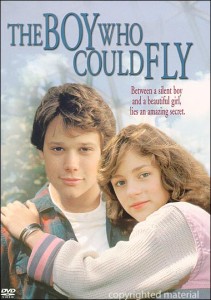
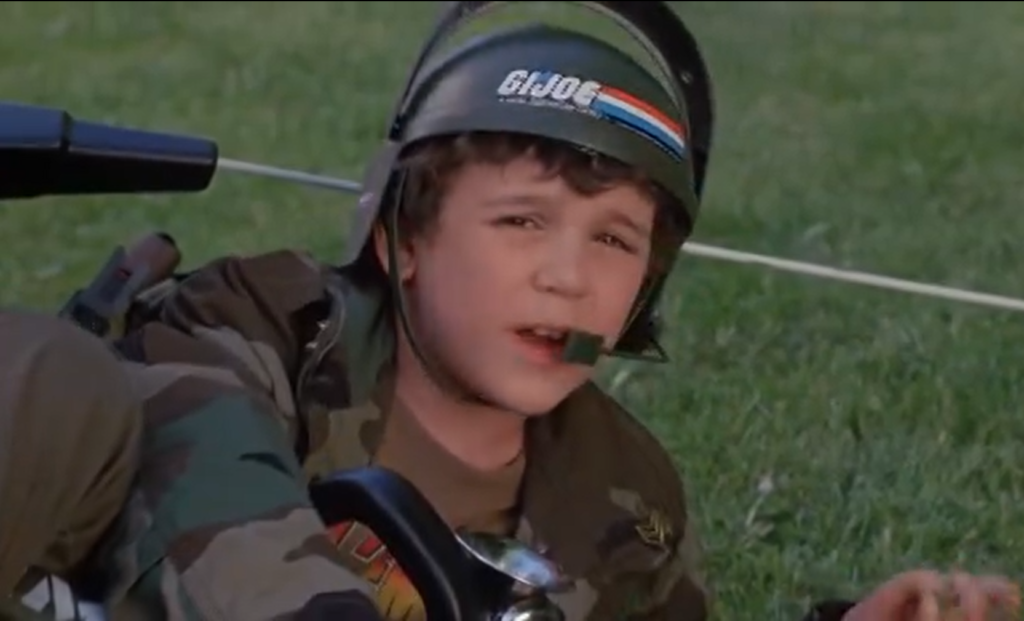
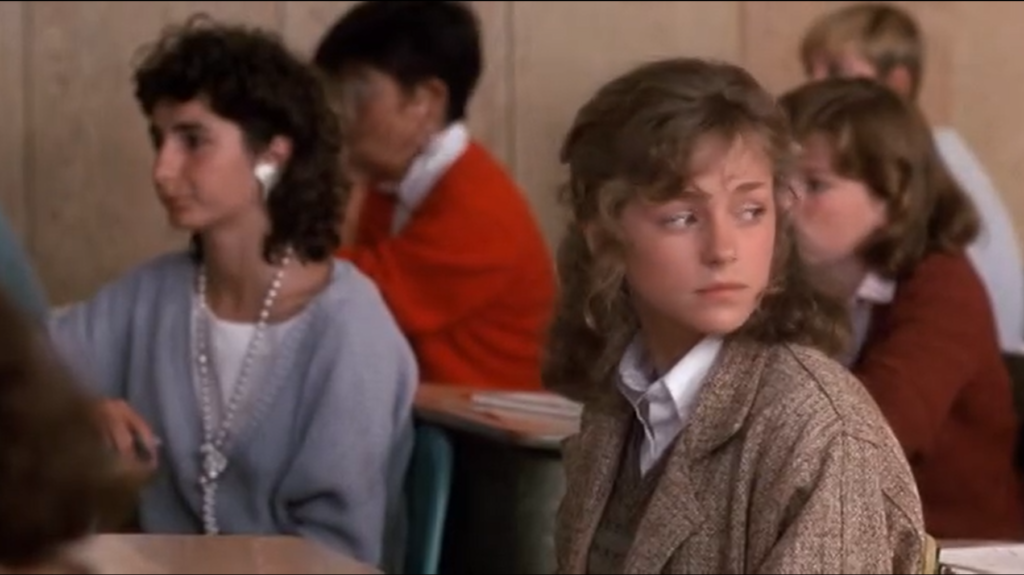
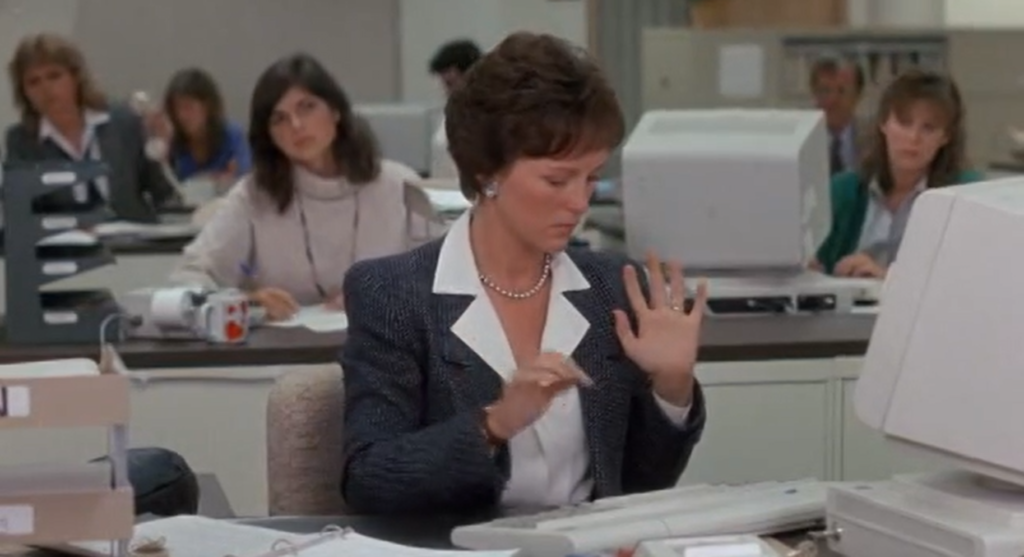
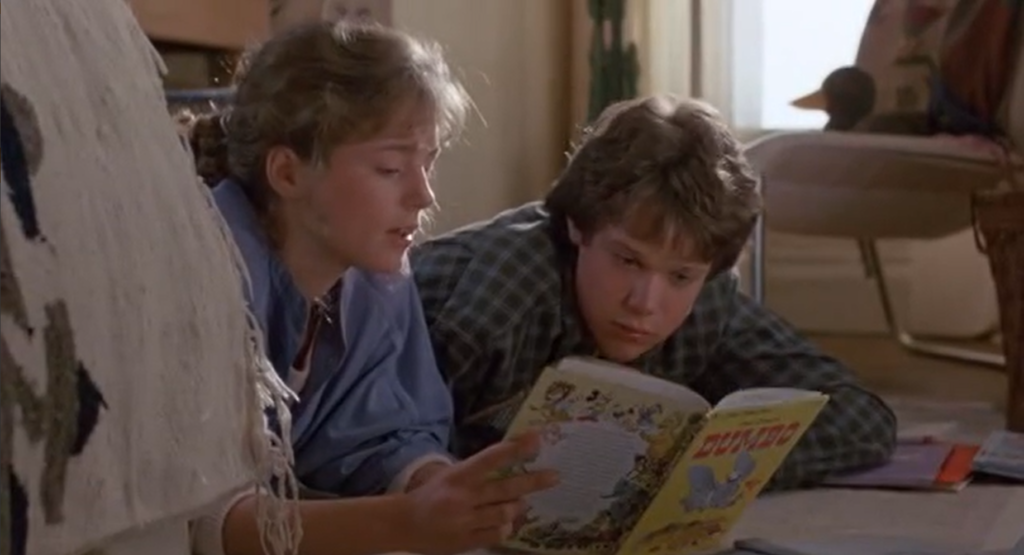
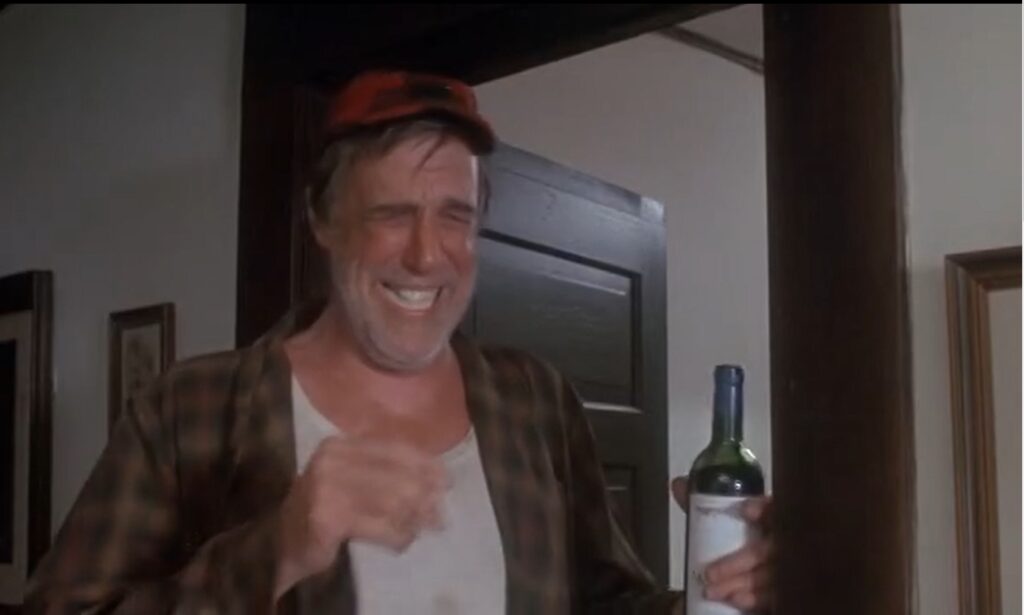
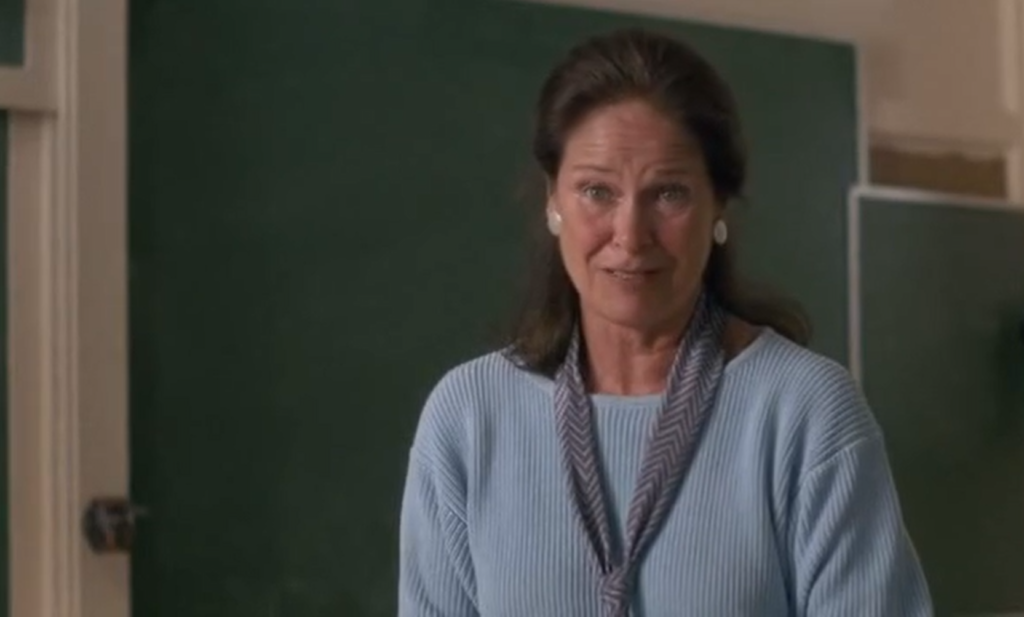
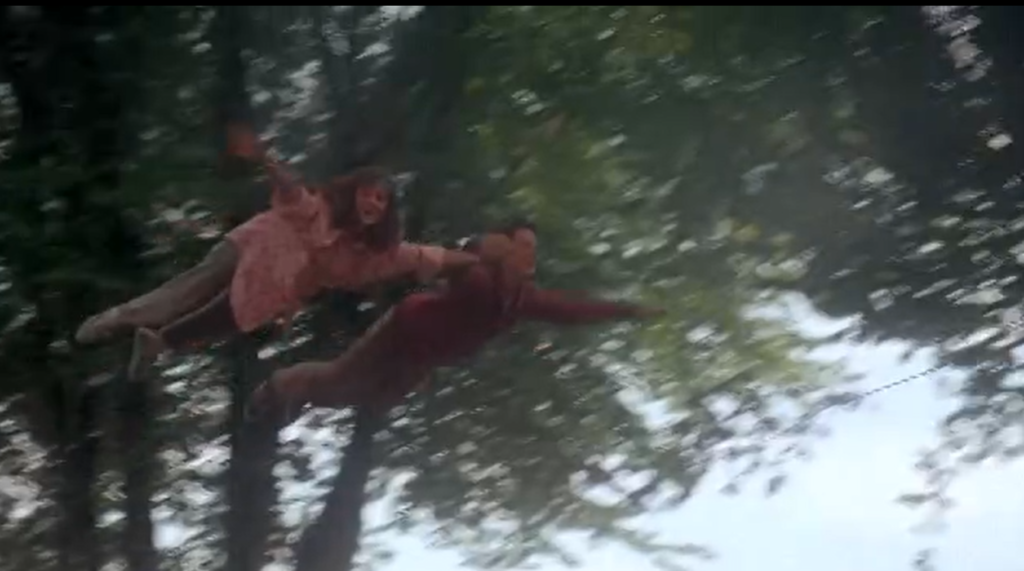
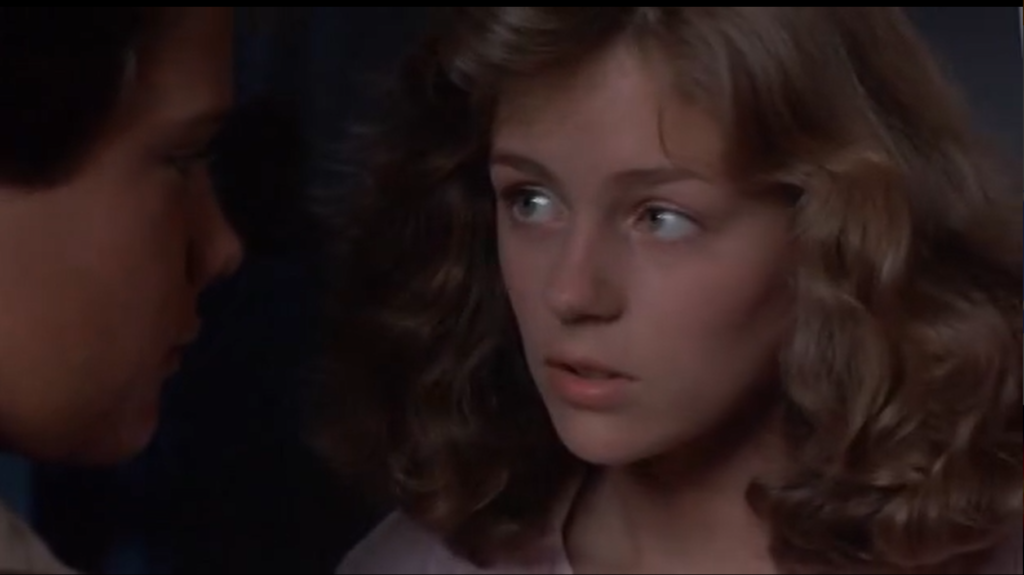
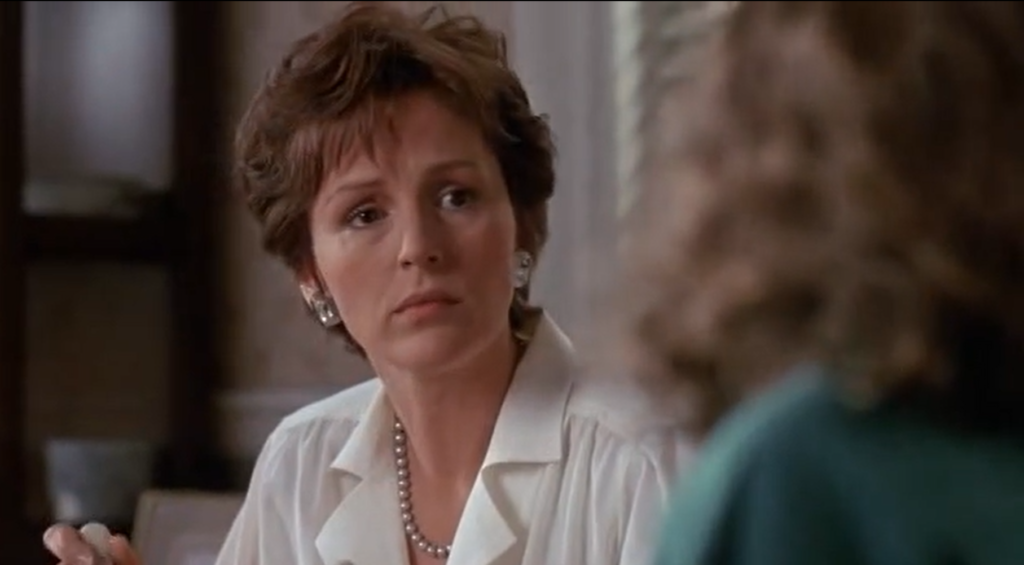
One thought on “Boy Who Could Fly, The (1986)”
First viewing. Not must-see, and in overall agreement with the points already made.
Even on its own terms, there’s some odd logic in this made-for-tv-ish flick:
– Even though it’s understandable that Bedelia is under some pressure with her new job, she has some less-than-admirable mom skills… like when her answer to everything seems to be “Go to your room!”, even when Deakins has acted like an adult in her own defense.
– When Underwood is on the precarious edge of a roof, would someone as intelligent as Deakins… scream for him to come down?!
– Underwood can barely function – and only mimics what Deakins does. Yet, when he’s alone he can feed himself?, run a film projector?
– Occasionally, the film is just a bit dumb: i.e., Deakins reaching for a flower on a dangerous ledge makes little sense for her character.
– And why… exactly… must Underwood ultimately just… disappear?, except for a dramatic ending?
The argument can be made that, because it’s a fantasy, some suspension of disbelief is necessary. …Maybe. …What I liked most about the film is the moving story of the actual circumstances of the father’s death. Other than that, I wish it had been better, and possibly shorter.
Savage is adorable. (“Listen, lady…”)
Sidebar: Louise Fletcher has a tiny role as a psychiatrist. What an oddly disappointing career she had after winning an Oscar for ‘…Cuckoo’s Nest’.